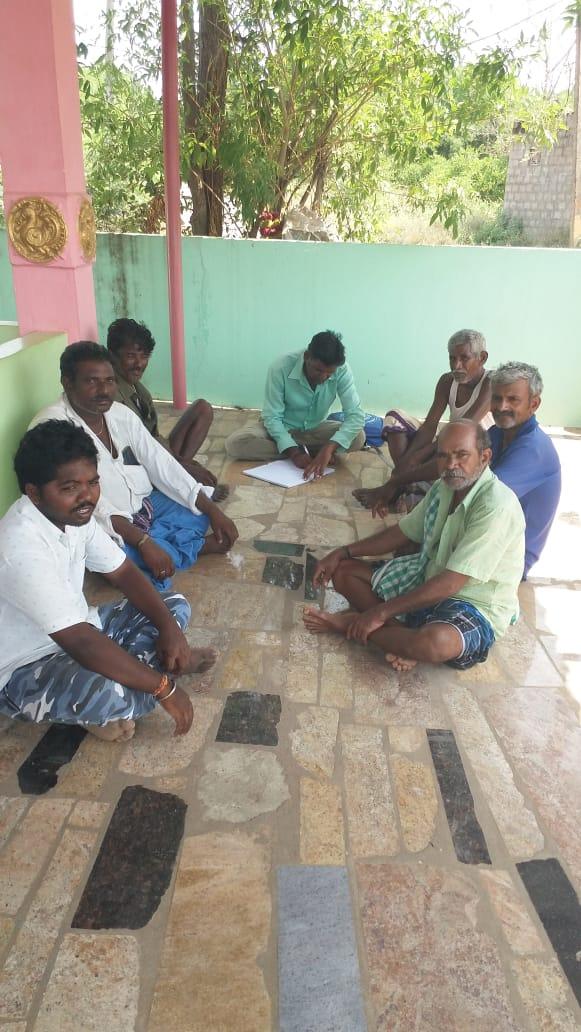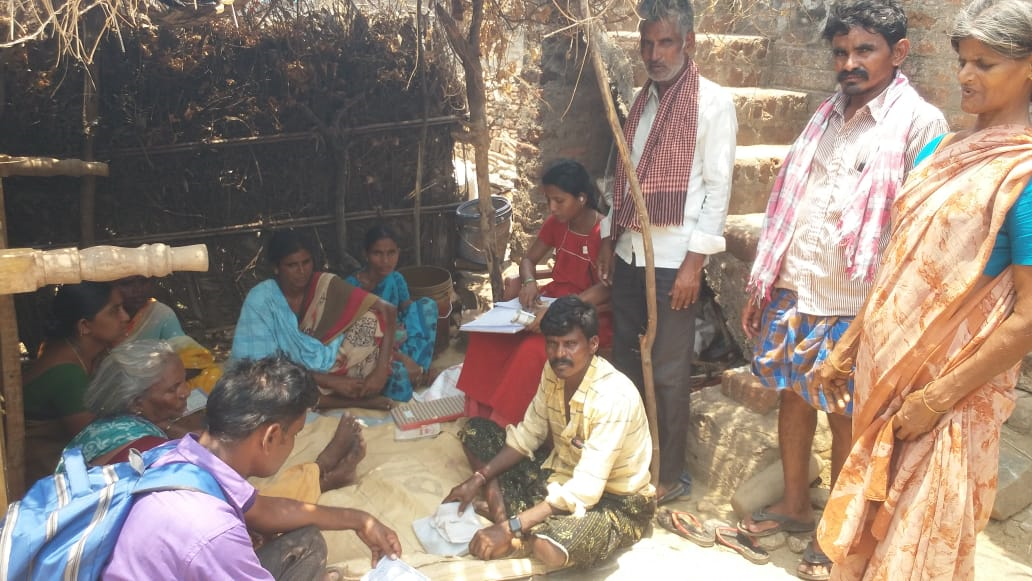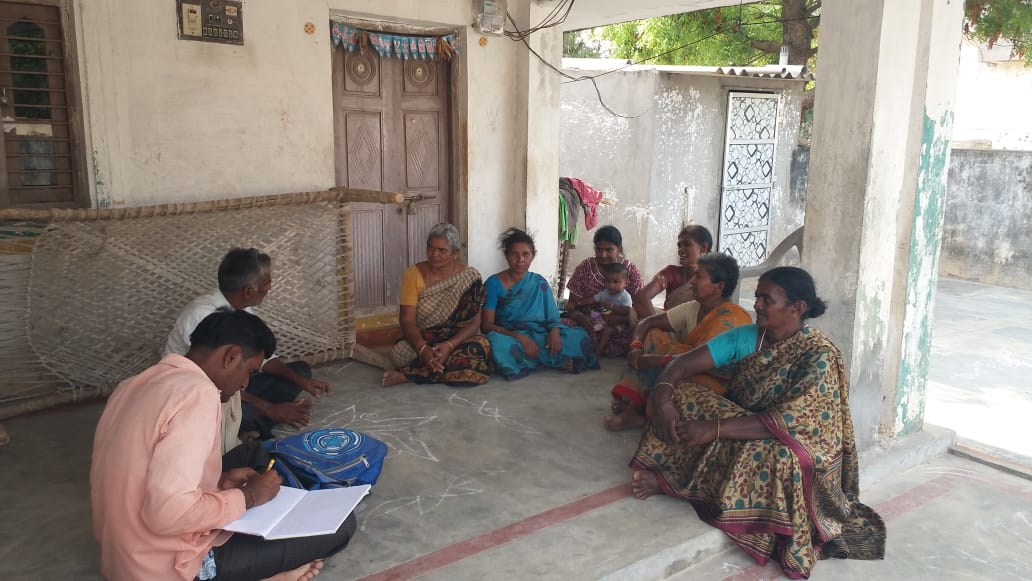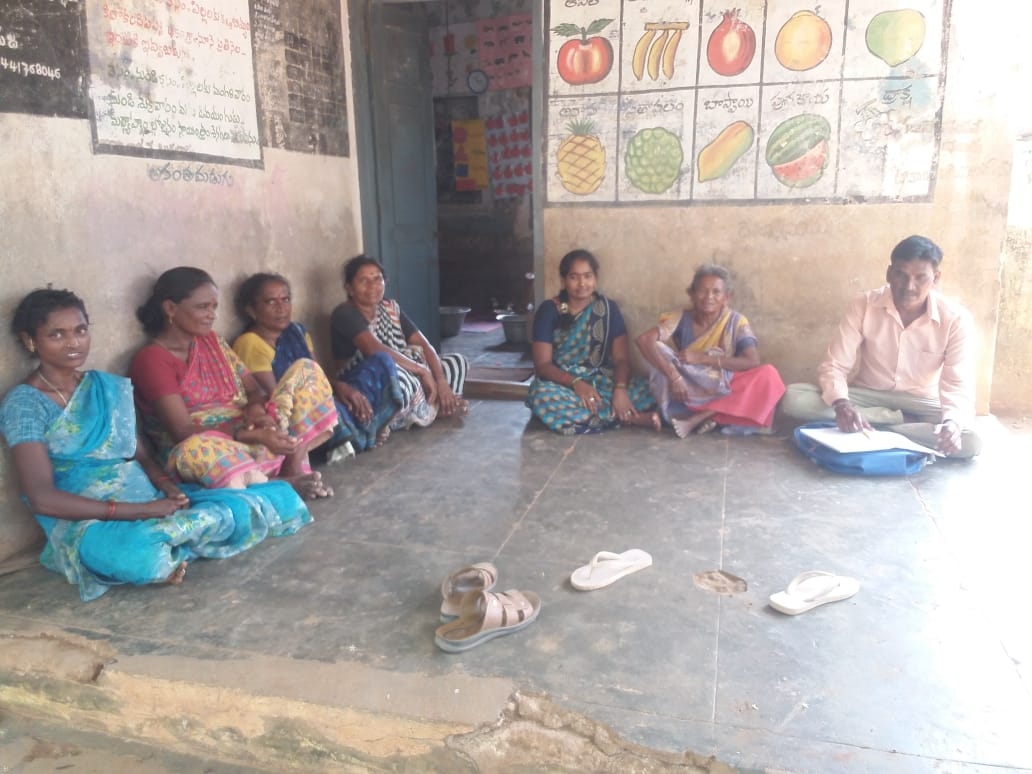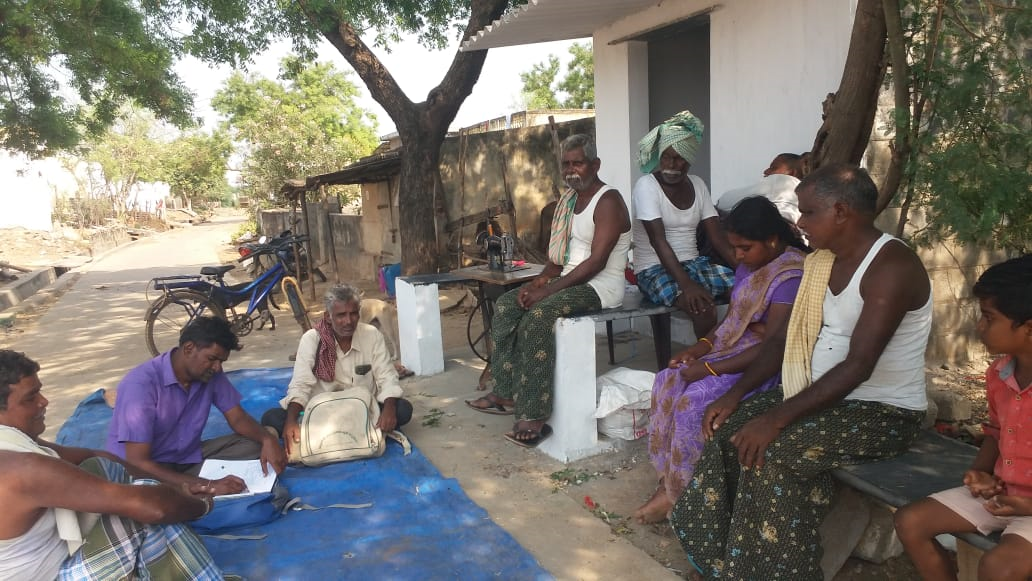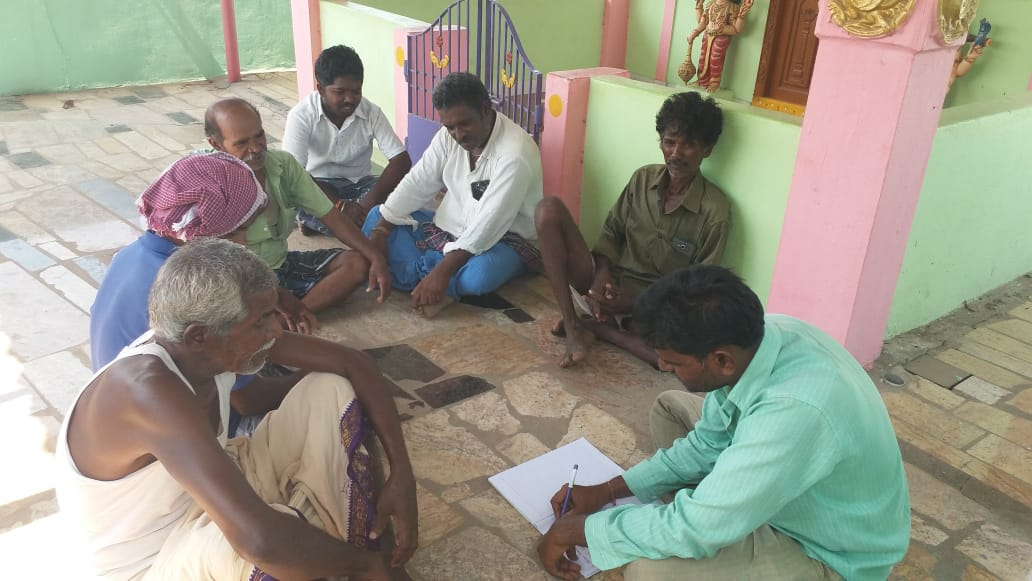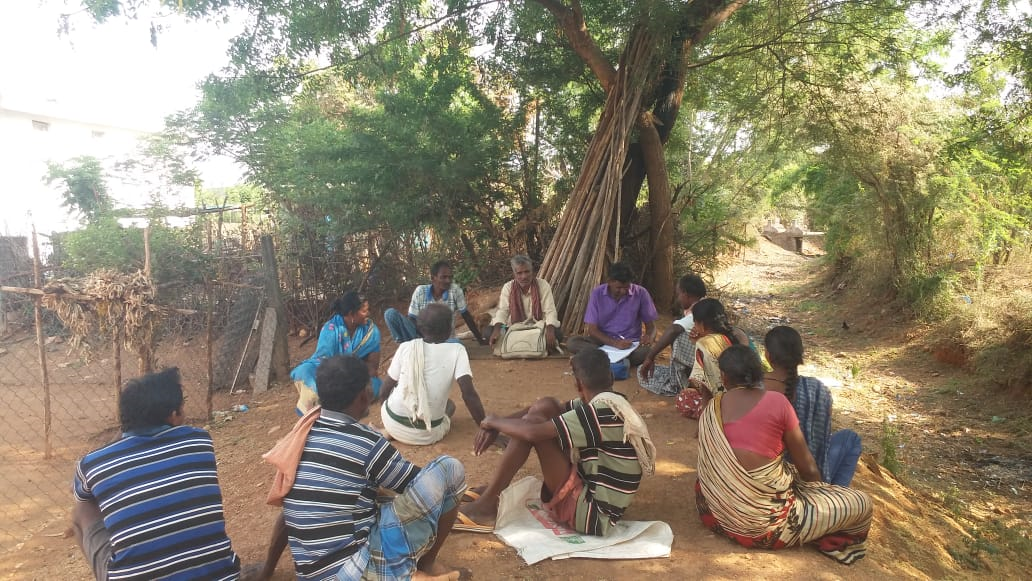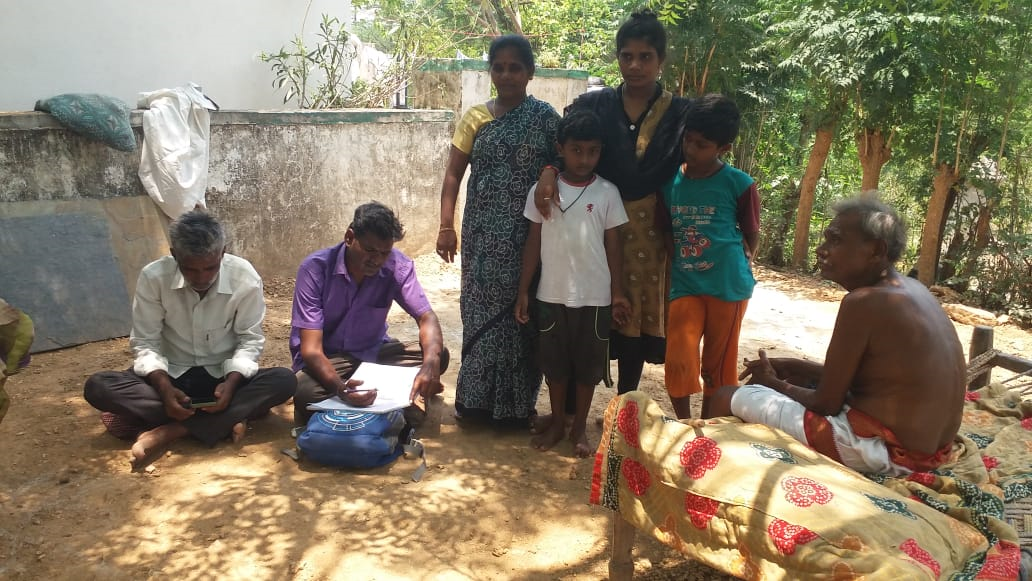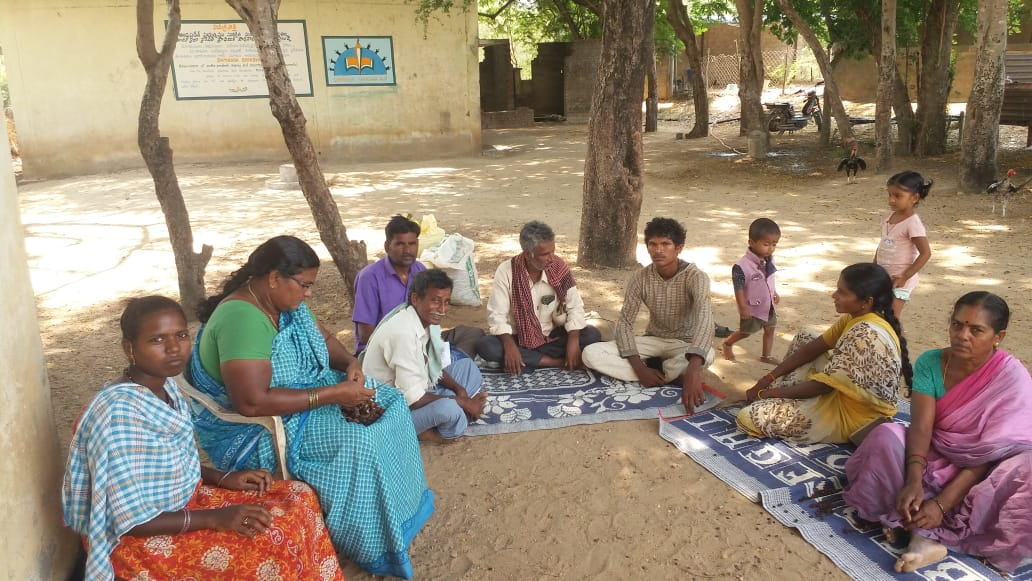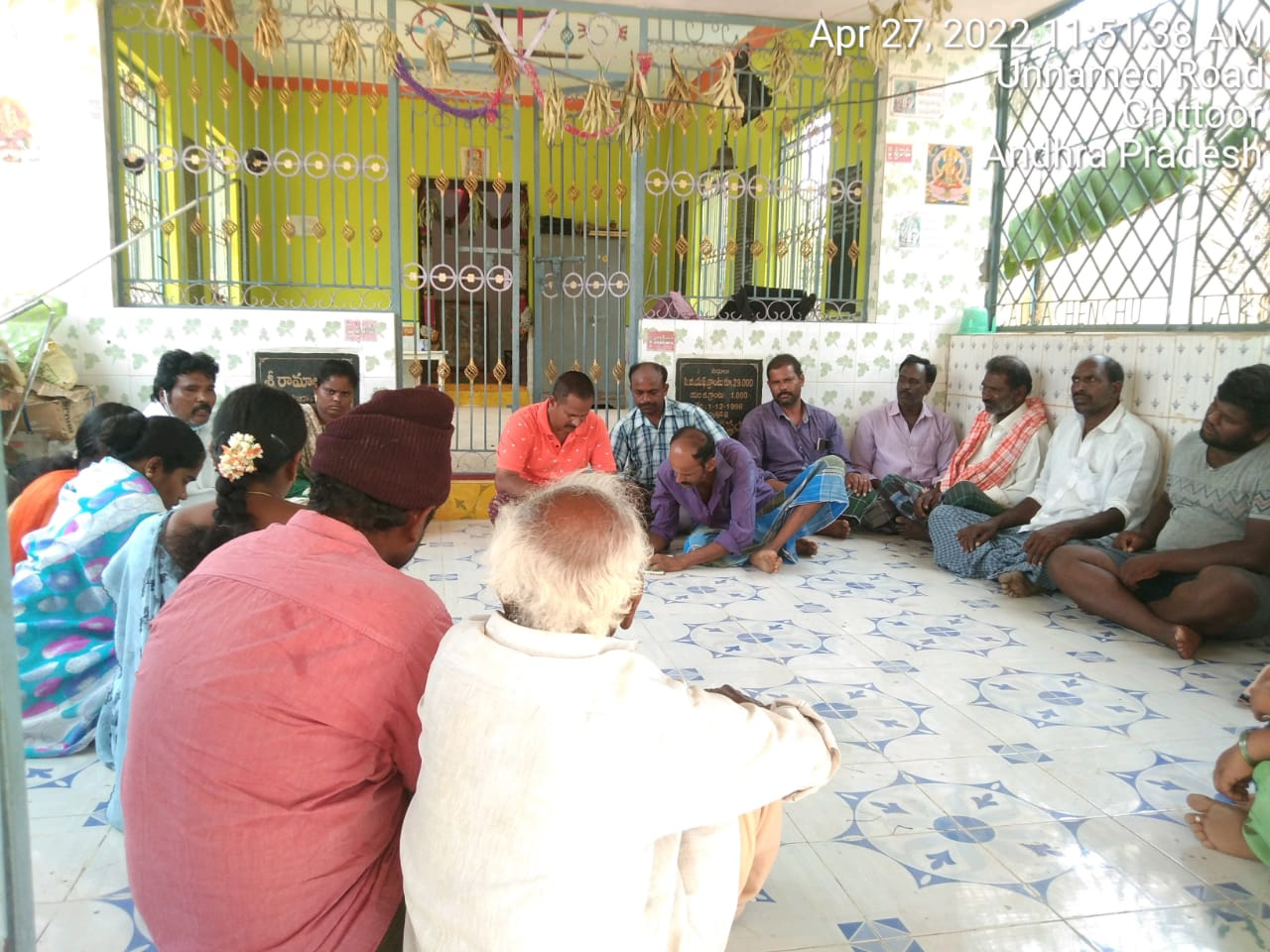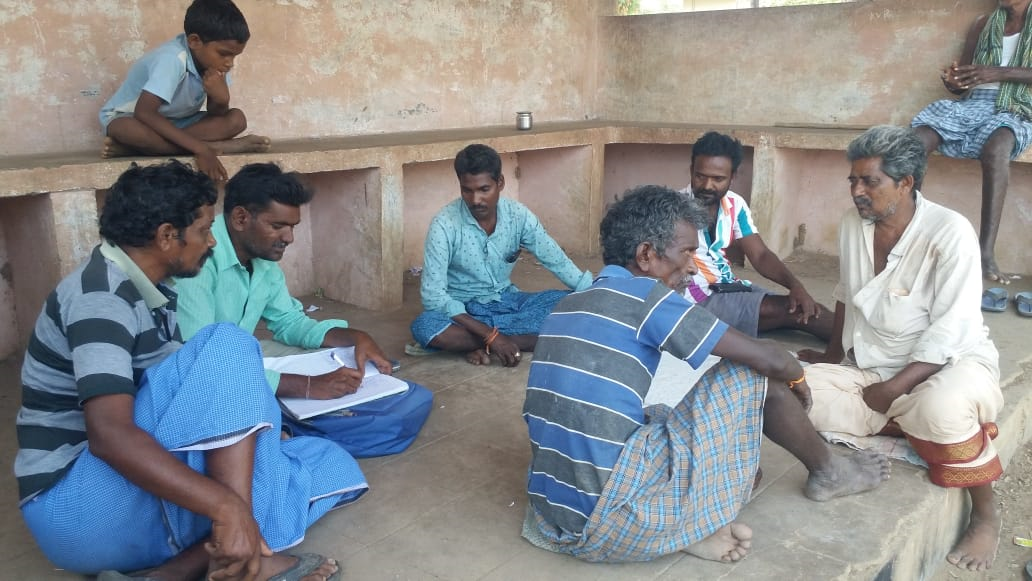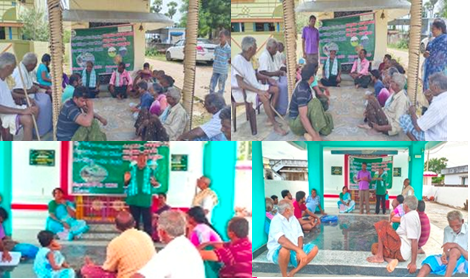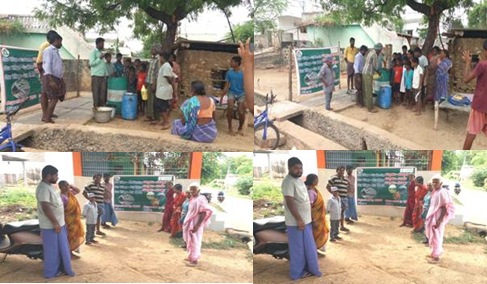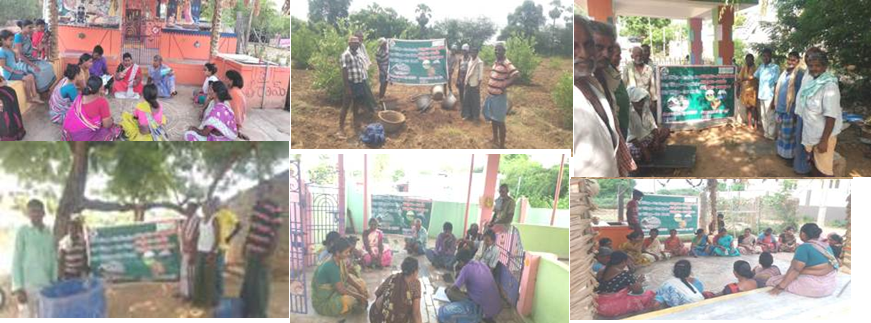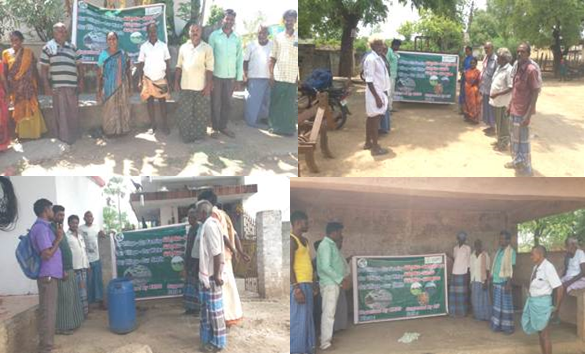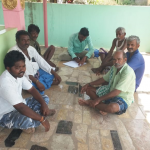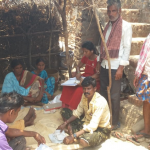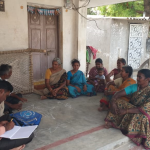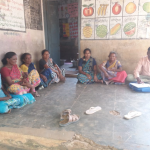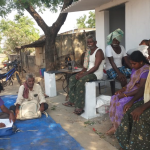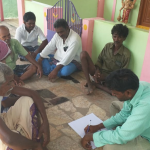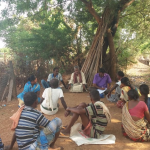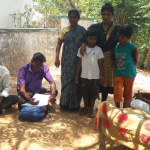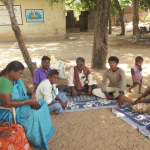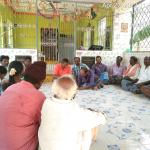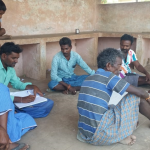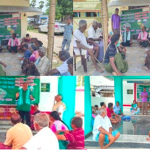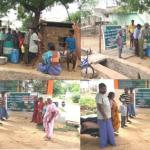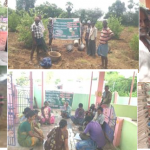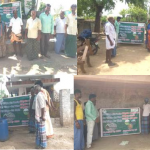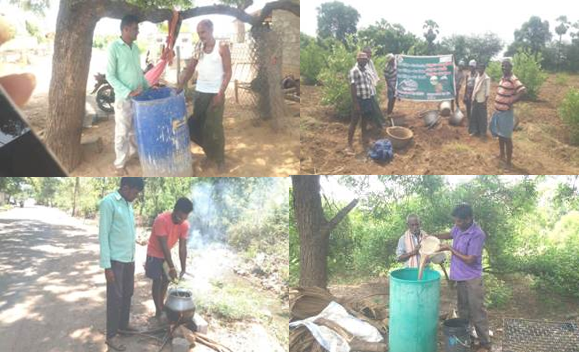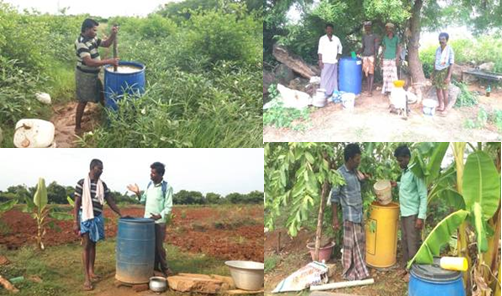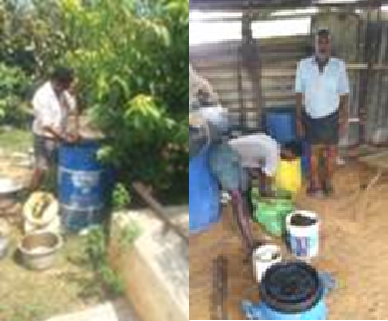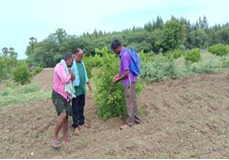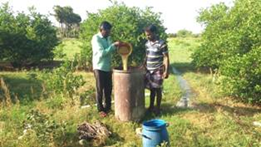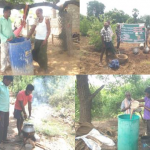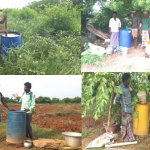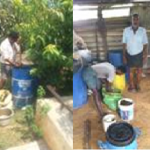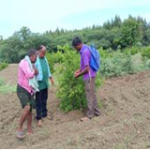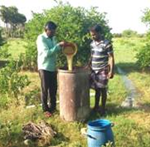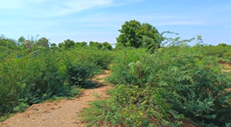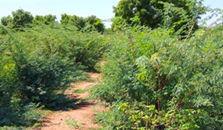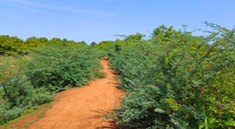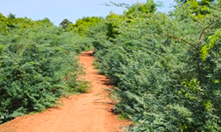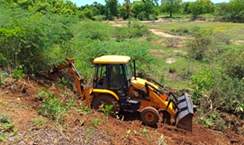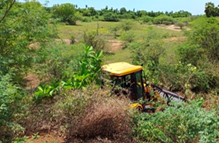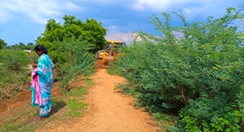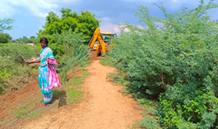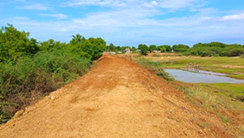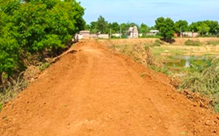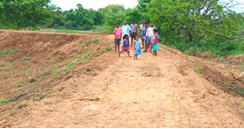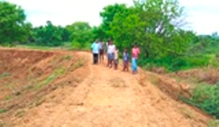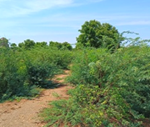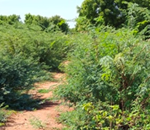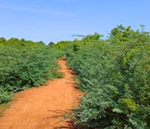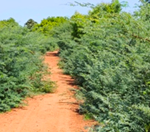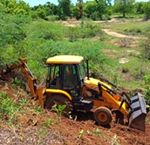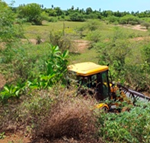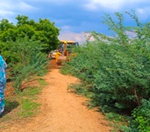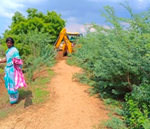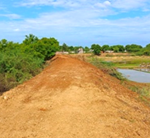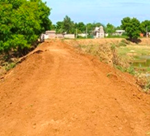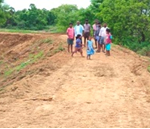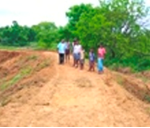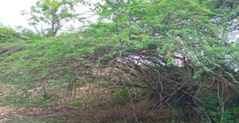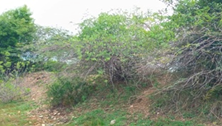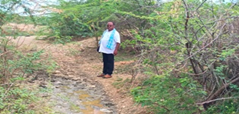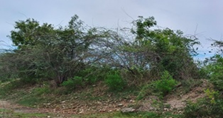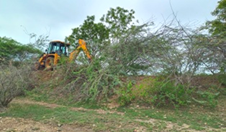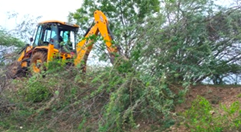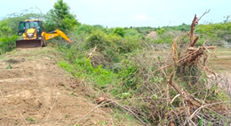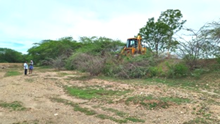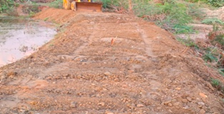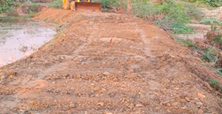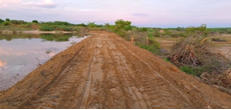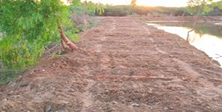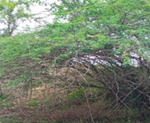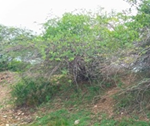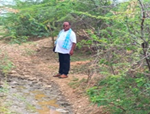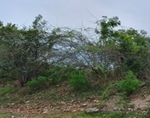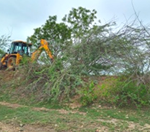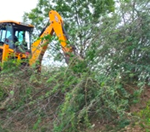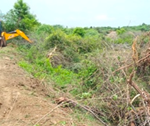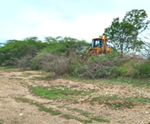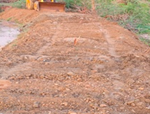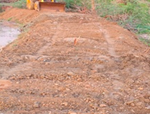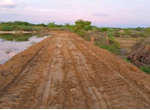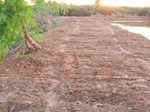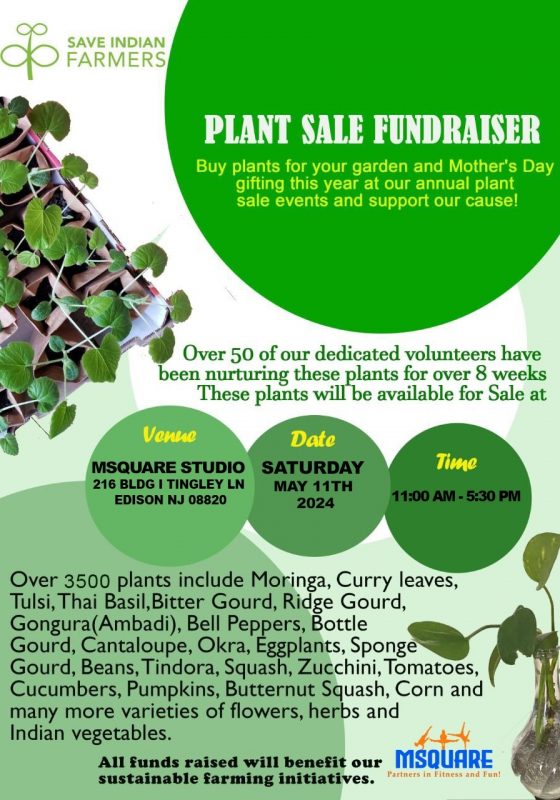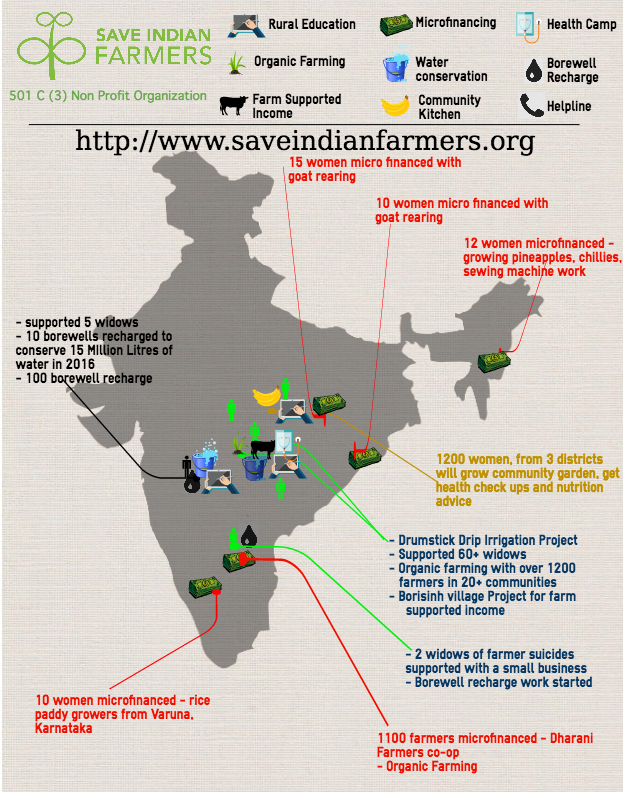Sustainable Farming of Small and Marginal Farmers – Nellore Region (Second Year)
Region: Nellore, Andhra Pradesh
Focus Area: 12 Villages of Sydapuram Mandal, SPSR Nellore District
SIF Partner: Rural Reconstruction & Development Society (RRDS)
Purpose of Project is to enable the small and marginal farmers to grow their food in the available lands to achieve food security by following local methods of cultivation towards sustainable farming and preserving their land, water, food for future generations through land and Soil Management, Water Conservation/ Natural Farming, Drip Irrigation, Old Community wells Recharging.
Current Situation Of Farmers:
We estimate that approximately 800 small and marginal farmer families are dependent on agriculture in these 12 villages in Sydapuram mandal SPSR Nellore district. Farmers with dry land are cultivating lemons, vegetables, black gram etc. whereas those with water facilities are cultivating rice. Despite working hard, farmers are not able to get adequate income and are abandoning agriculture and migrating to cities.
- Absence of water harvesting techniques
- Lack of knowledge of land and crop management techniques, soil health and inter cropping
- Heavy use of chemical fertilizers and pesticides.
- Selling the harvest through middlemen resulted in lower prices for the farmers.
- Farmers are getting high interest loans making it difficult to repay
Objectives:
- Promote small and marginal farmers and formation of Co-operative farming
- Promote Water & soil moisture conservation methods
- Promote Natural Farming methods
- Promote Drip Irrigation and inter cropping
- Old Community wells recharging
Activities Planned:
- Village Meetings
- Demonstration meetings
- Canal Works
- Tank Renovation
- Community wells
Activities done so far :
Village Meetings:
April Month: RRDS Team Coordinator Mr. D .Subramanyam visited the 12 project villages. He organized meetings to educate the farmers about the importance of natural farming practices, water harvesting structures and community kitchen gardening.Total 160 members participated in the meetings.
May Month: Our Field Coordinators and Volunteers visited the villages and organized awareness meetings to explain the importance of Natural Farming practices. We have educated the famers on the effects of chemical farming on land, water, soil and health and how reducing the chemical farming will result in reduced cost of cultivation.
Our team conducted demo meetings for preparation of the Jeevamrutham, Ganajeevamrutham, Bramhastram, and Vavila Kashayam.
June Month: RRDS team visited the villages and organized awareness meetings and demo meetings about Natural Farming Practices. The field staff also visited farmer fields to observe the cultivation practices, pests and diseases while cultivating Lemon and other crops.
Demonstration Meetings: Jeevamrutham preparation Demo
Jeevamrutham is an important part of Natural farming. It helps to utilize cheap and local inputs with zero use of chemicals in any form like herbicide, fertilizer, antibiotic, pesticide, hormone, etc. Apart from using agro farm-based natural products, there is an increasing demand for improvised and utilization products like Panchagavya, Jeevamrut, fish amino acids. It helps enrich the soil with microorganisms but also decreases the diseases in many crops.
Jeevamrutham is a low budget preparation that enriches the soil and helps to grow microorganisms and improve mineralization of the soil.
Jeevamrutham is prepared from native cow’s urine, dung, jaggery, and horse gram.The fungal infections and tick burning are effectively kept under control by Jeevamrutham.
Ingredients for Jeevamrutham
Water 200 liters
Desi cow dung 10 kgs
Desi cow urine 10 liters
Jaggery 1 kg
Flour of any pulses 2kg
Thokalapudi Tank Renovation:
The Thokalapudi Cheruvu (Tank) bund was weakened.Tank area was covered with bushes.We organized a meeting in Thokalapudi SC, BC Colony and discussed the tank work.
The tank enabled lemon and dryland crops cultivation for a total of 30 farmers (42.60 acres land). The livestock of surrounding villages depend on the drinking water from this tank during the summer season.
The tank work was successfully completed with community participation.
Kothrajupalem Tank Renovation Work:
The Kotharajupalem Tank bund was weakened.Tank area was covered with bushes.We have organized meeting in Kotharajupalem village and discussed the tank work.
The tank enabled lemon and dryland crops cultivation for a total of 18 farmers (39.5 acres land). The livestock of surrounding villages depend on the drinking water from this tank during the summer season.
The tank work was successfully completed with community participation.

